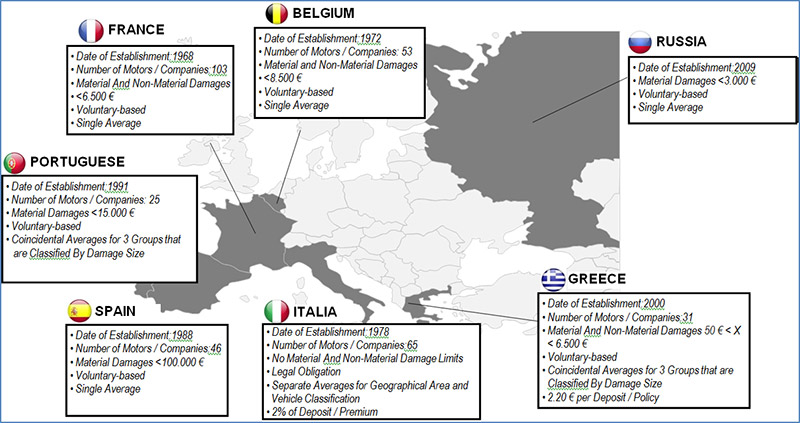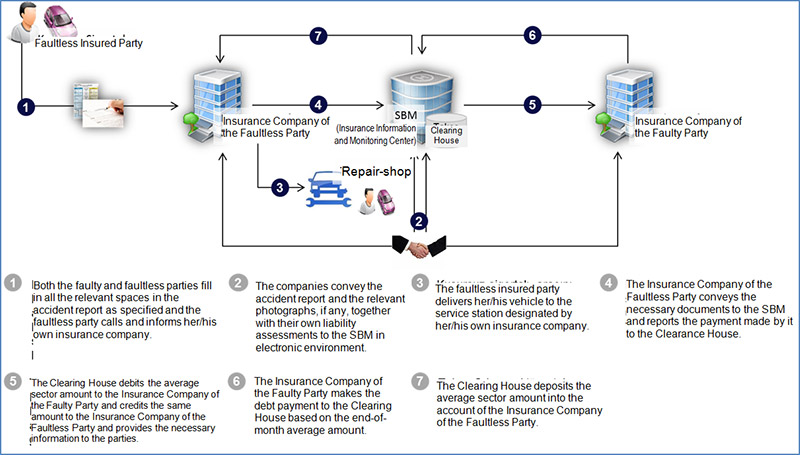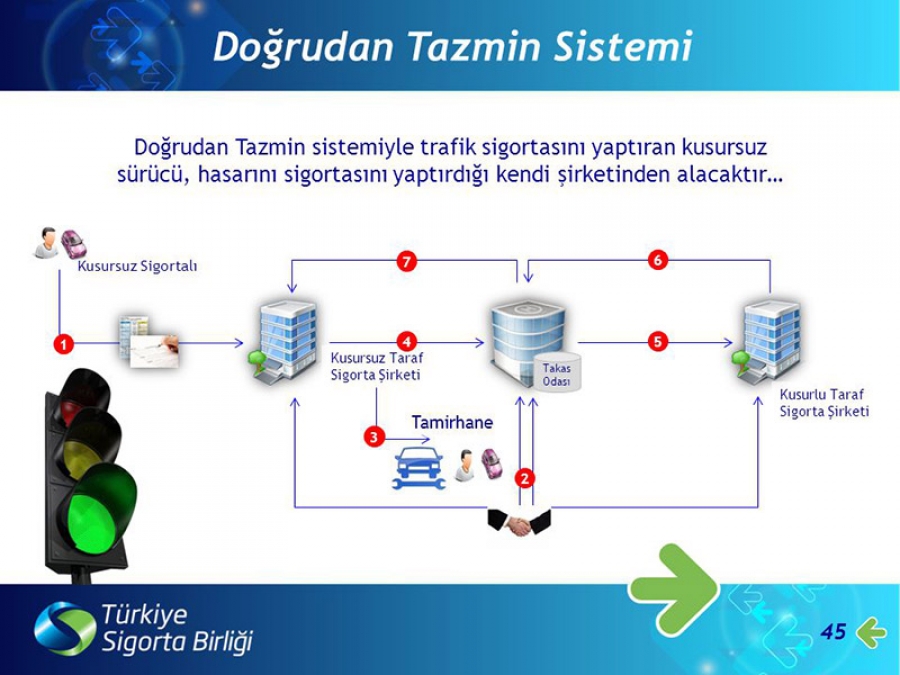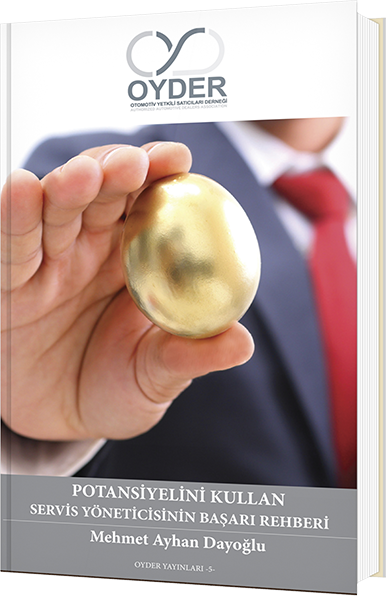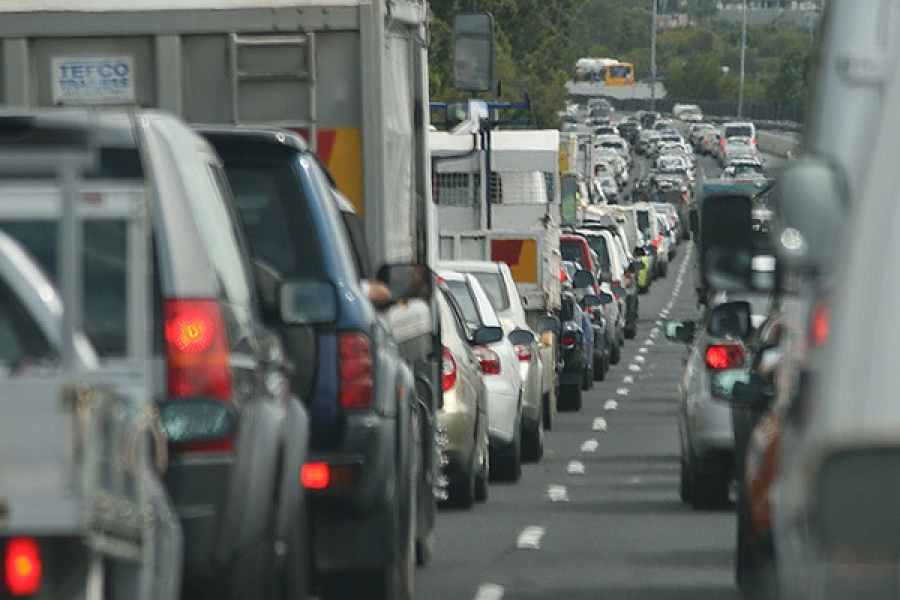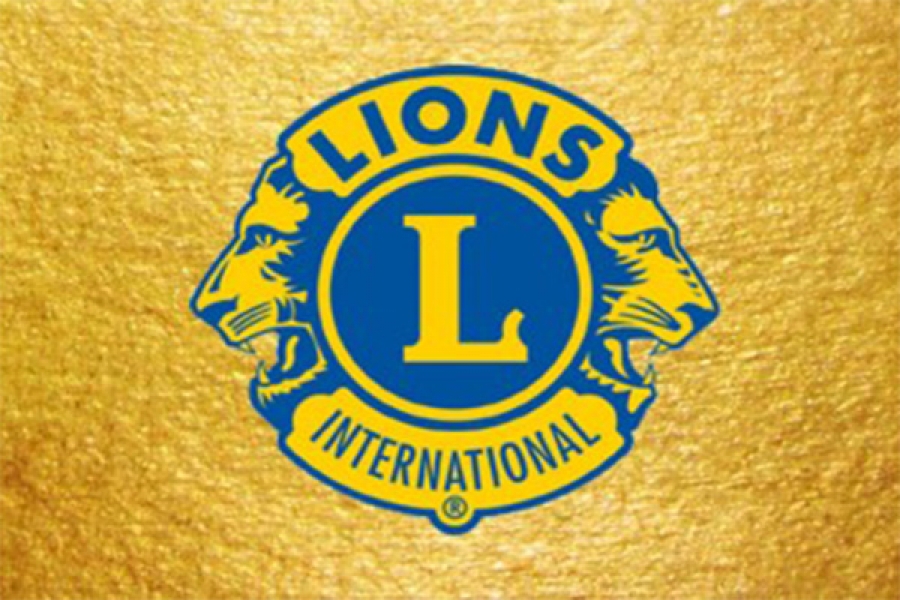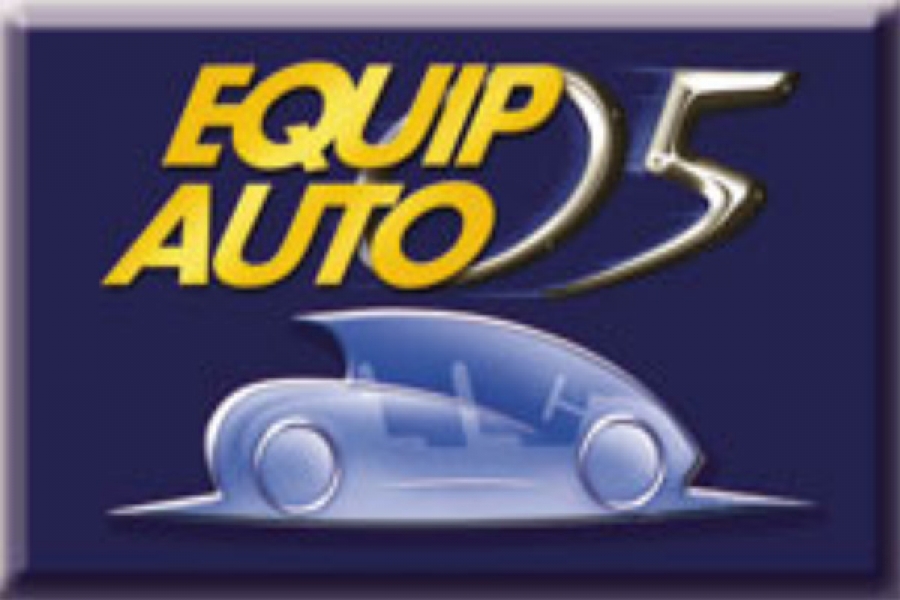Sunday, 12 June 2016 12:00
The Last Ring of Change: Direct Compensation System
Works concerning the Direct Compensation System (DCS) being carried out under the roof of the Insurance Association of Turkey (TSB) are continuing.
The DCS is a compensation payment method being implemented under compulsory traffic insurances in almost all European countries with small differences for a long time. The main objective of the project, which was initiated in Turkey by the TSB in 2013, is increasing the satisfaction of compulsory traffic insurance customers while lowering the operational costs of insurance companies.
There are approximately 15 million vehicles excluding motorcycles and tractors on highways in Turkey. The rate of these vehicles’ risk to have accidents resulting in material damage covered under compulsory traffic insurance is 7%. That is, approximately one million compensation payments are made by insurance companies to affected parties every year. However, 95% of these repairs are performed by private service stations. In cases where the clients of insurance companies are the faulty party, insurance companies pay such compensations to persons they do not know, who are not their clients.
Under such circumstances two basic matters take place:
1. The insurance company that makes payment to a person, who is not a client, does not focus on the quality of the spare part, the repairing method applied, or the quality of the repair, etc. while the vehicle is being repaired in the private service station chosen by the affected party. Because it does not know the service station, how it does business, and in fact does not want to know all these. It sets its objective as reducing the cost in these types of damage files.
2. The Client expects the service station, to which s/he takes her/his vehicle, to continuously follow the damage as would be done by the service stations that work under contracts with insurance companies. The private service station, on the other hand, undertakes this duty with a letter of attorney. It reports the damage to the insurance company, performs the damage assessment, negotiates with the expert, performs the repair, benefits from the replacement vehicle, etc. services, and collects the money from the insurance company upon the completion of the work, all by itself. In such circumstances the Client faces a premium increase that is higher than required in the next year since a potentially higher than adequate cost takes place in a service station not supervised by the insurance company.
Therefore, insurance companies are trying to create ways to help their clients in traffic insurances in order to solve these major problems.
The DCS will be an implementation to be used while compensating for the material damages of compulsory traffic insurances. The party having the accident will apply to the insurance company from which s/he purchased the policy instead of the insurance company of the opposing party depending on her/his fault in the accident. The insurance company will either direct its client to one of its contracted service stations or the client will choose the most appropriate from among the contracted service stations of the company and take her/his vehicle directly to that service station, as the case in motor own damage insurance repairs today.
Of course, the situation we cannot overlook in this case is the fact that the costs of repairs performed in authorized service stations will be much higher compared to those of private service stations. In such a case, the costs of the insurers will increase and they will start to reflect the increased costs to policy prices, and if this is not possible, to bring together private service stations they can supervise and establish a secondary service organization for the repairs of traffic policies.
As can be seen, the DCS brings along both opportunities and threats for authorized service stations.
Authorized service stations need to change the strategy they apply for insurance repairs in order to turn this new situation into an opportunity; because with the DCS, the customer profile will change, second hand parts within the scope of equivalent and/or EOL (End-of-Life Vehicles) will be used under the policy, and repair rather than replacement of parts will gain importance. Changes will take place in the profiles, trainings, repair techniques, etc. of the technicians, who will perform these repairs. Authorized service stations will have to procure parts from suppliers other than the distributor, buy tools and equipment when required, and switch from single-brand service operations to multi-brand damage repairs.
If those explained above cannot be performed in harmony with insurance companies, it will be possible to see different players in the damage repair sector in Turkey.
In fact, the signals of this change are being observed nowadays. One of the alternative repair firms, which started with the objective of offering mini repairs to insurance policies in Turkey, has completely been taken under the management of investment companies recently. The first decision taken by the new management was in the direction of turning to medium and high damage repairs besides mini repairs. One of the largest damage repair chains of the world has opened its third service station in Turkey. Their target is to reach 50 service stations in three years. Other mini repair chains are also increasing their standards while searching for investors for their companies.
The TSB is planning to put the Direct Compensation System into use on July 01, 2017. Entering the system will be optional for insurance companies. Let us see what the time will show.
However, the system is in use in Europe for a long time.
On the other hand, the price has been backed into a corner in traffic insurance. There is a segment of customers, who are willing to pay more for a better service.
Insurers will decide one way or another. But authorized service stations will need to take the necessary steps without wasting time by following the transformation in order to come out better off from this change.
